6. Dogtooth
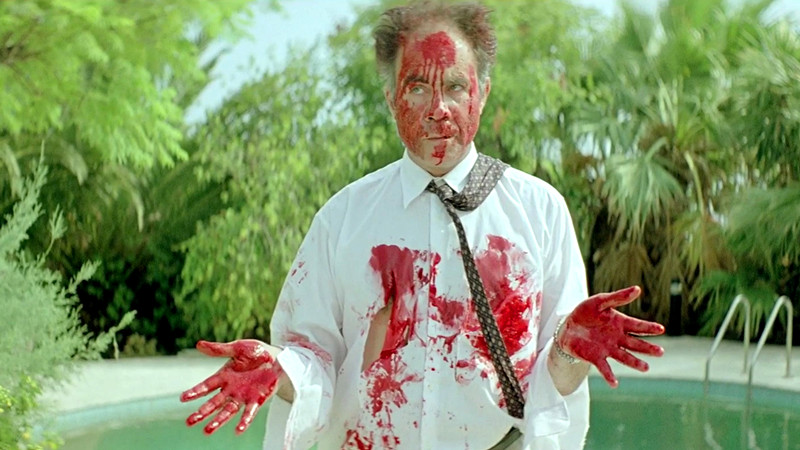
Yorgo Lanthimore’s most recent works, The Lobster and Killing of a Sacred Deer, led to him becoming well-known to a broader audience, capturing people with his slow-moving, ambient and engrossing visions of the world. Dogtooth, from 2009 and his fourth film, brings the theme of control to the fore.
Living within a fenced compound, we are introduced to a nameless family – the parents (Christos Stergioglou and Michele Valley) and their three adult children, a son (Christos Passalis) and two daughters (Angeliki Papouli as the eldest; Mary Tsoni as the youngest).
Tightly controlled with stories of the dangerous world beyond the compound walls, and filled with distorted ideas of reality and language as filtered through their demented father, the adult children are told they will only be prepared to leave once they lose their dogtooth. When Christina (the sole named character), a woman employed by the father to come and have sex with his son, loses patience in the arrangement and turns her attention to the eldest daughter, the house of cards begins to slowly but surely come down.
Dogtooth is a barrage of intensity and simmering emotion that sometimes breaches the surface, as in an alarming and uncomfortable dance number put on by the two daughters to entertain the family with a bit of dinner theatre. Ultimately a story about control – the gain thereof, and the loss – it sucks you into its cultlike bubble and at the very least, Flashdance will never quite look the same.
7. Repulsion
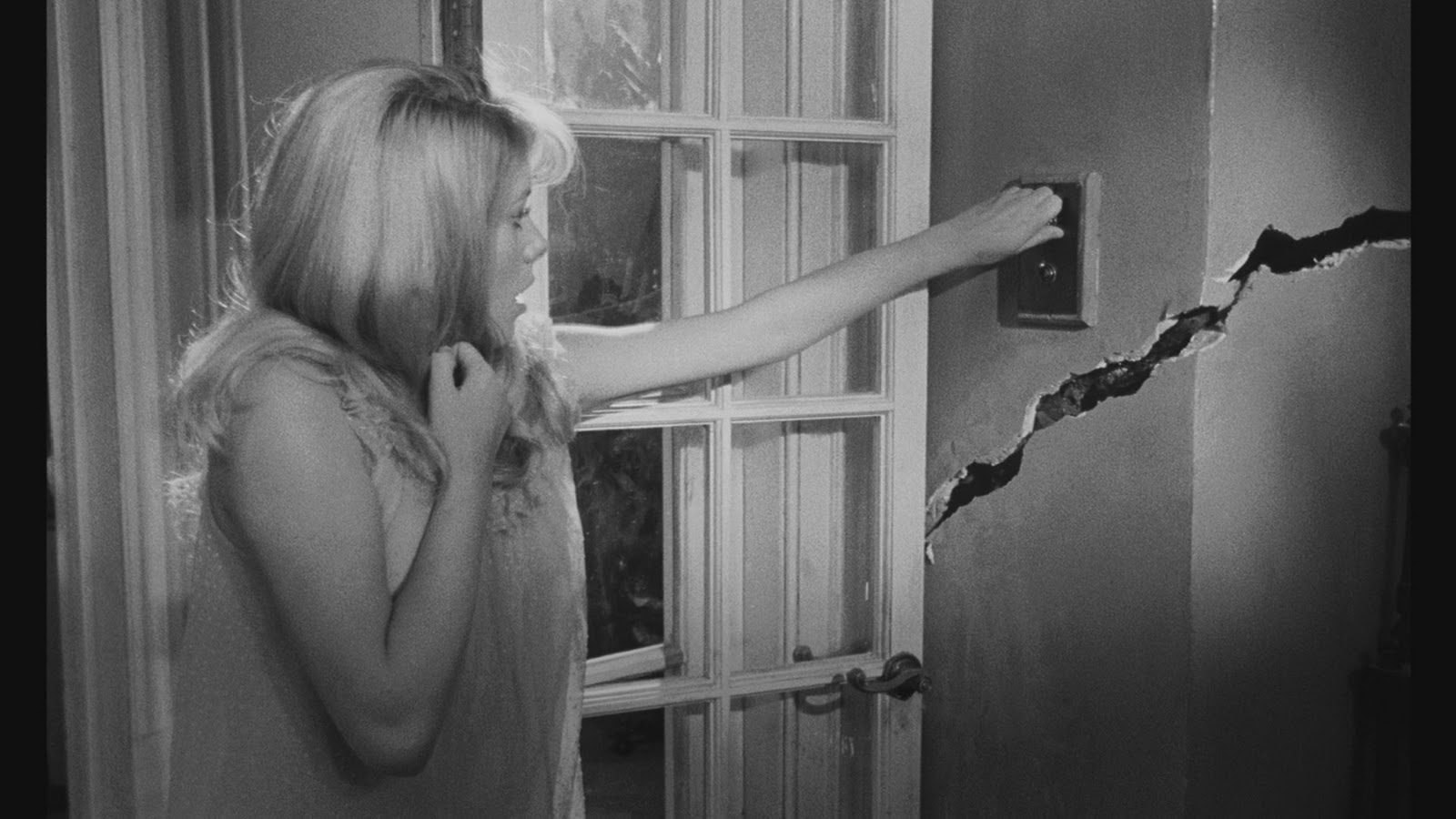
Shot in glorious black and white, Roman Polanski’s Repulsion is easily summarized as ‘a young woman loses her mind in her apartment over the weekend’ – describing how this all comes about is a little trickier.
Starring a harried and wild-eyed Catherine Deneuve as Carole, frightened of men and living with her flirtatious sister Helen (Yvonne Furneaux), we are introduced to our suffering protagonist and the apartment, where we will, for the most part, remain. Taking off for the weekend with a married man, Helen leaves Carole to her own devices, which apparently means a total collapse into madness as her demons come out of hiding.
Catherine Deneuve spends much of her performance reacting in horror to the disintegration of her reality, with groping hands materializing out of nowhere and walls shuddering and cracking apart around her, and a guy dropping in to firmly cement her disgust and fear of men. The imagery is stark and jolting but only a small piece of the puzzle, Deneuve delivers an incredible performance, and if you’re a fan of rabbits, tread lightly.
8. Seven Beauties
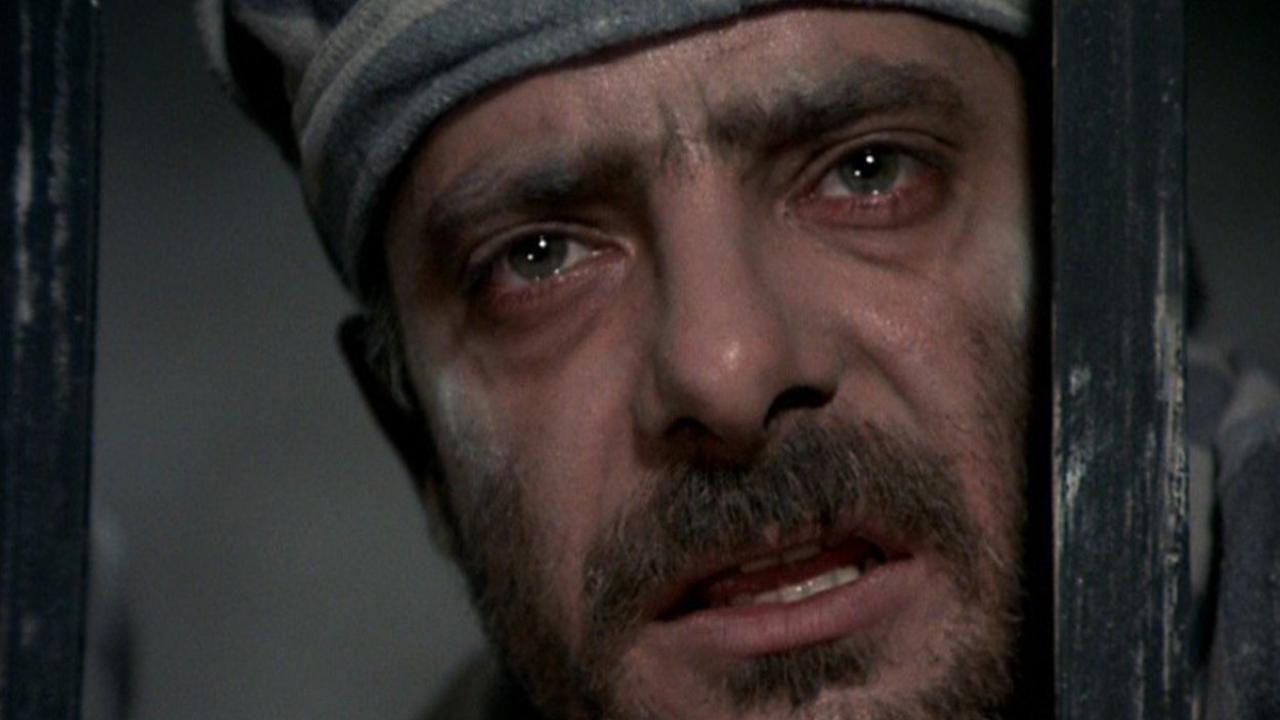
Italian director Lina Wertmuller’s 1975 Seven Beauties is a triumph, earning her a nomination (the first woman to receive such) for the Academy Award for Best Director. Following the roguish dandy Pasqualiano (Giancarlo Gianni) through a tour of Italian machismo, honour and survival in World War II Italy, Wertmuller paints us a portrait of identity under siege.
After being encouraged to commit a murder to keep a pimp away from one of his seven sisters after she is beguiled into a life of prostitution -and following a lengthy scene with a wilful, flatulent corpse flouting our hero’s attempts at covering up his crime – Pasqualiano is first sent to prison.
This is just one stop in his march toward freedom, weaseling his way first into a psych ward and then the Italian Army, and ultimately into a German concentration camp once he is captured as a deserter.
Colourful characters are expected of Wertmuller and she fearlessly provides. The star of this rogue’s gallery arrives late in the game in the form of a monstrous, frigid Nazi commandant who thoroughly emasculates our hero in a brutal monologue.
Seven Beauties is a difficult watch at times – the horror of war underscored by Pasqualiano’s utilization of his famous Italian libido – but tells a passionate and theatrical story. The women he encounters throughout each have a role symbolic and metaphorical, although Pasqualiano’s first true love will always be his mama.
9. A Girl Walks Home Alone at Night
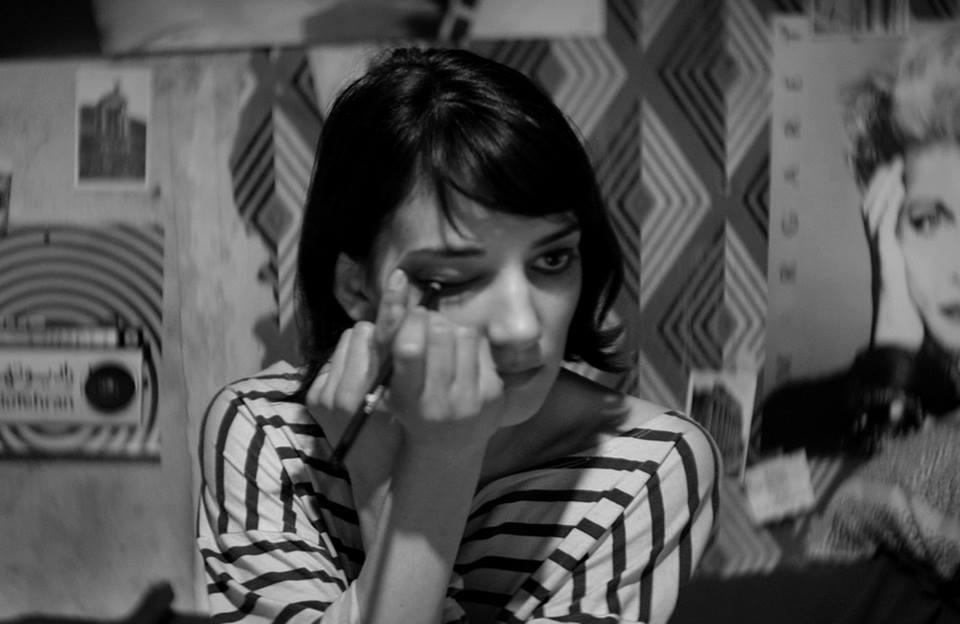
From director Ana Lily Amirpour and billed as ‘the first Iranian vampire western’ (not hard to believe), A Girl Walks Home Alone at Night is indeed ostensibly a vampire story. The titular Girl (Sheila Vand), a contemporary vampire with a cool and untouchable affect, meets a be-pompadoured and leather clad young man, Arash (Arash Marandi). Arash, living in a troubled home with his junkie father and massively fat cat, is wooed by the mysterious and murderous Girl. Together they navigate their desolate, nameless hometown (‘Bad City’) of delinquents and savants.
Straightforward, yes? The story is about a vampire and a boy, but there is more humanity at play than first appears. The Girl is an impassive, sharklike force and Arash is her emotional foil, and the City around them mirrors and distorts both.
A Girl Walks Home Alone at Night is quietly, aggressively surreal: the iconic moment comes when the Girl dons a chador and languidly skateboards down the middle of a desolate road, her chador billowing out behind her, batlike and distant.
10. Possession
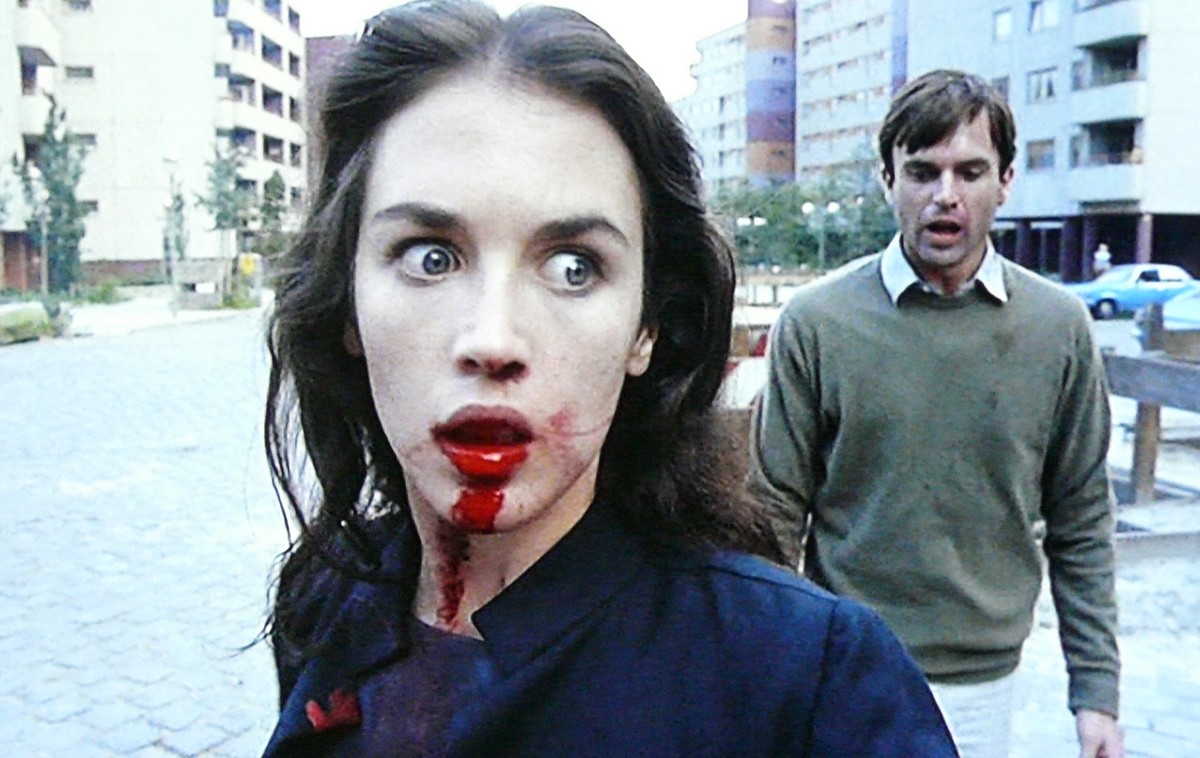
Arthouse director Andrzej Żuławski brings us Sam Neill as Mark, a spy and beleaguered husband in the actor’s second excursion into outright horror (following his performance in Omen III). His wife, the severe and ethereal Anna (Isabelle Adjani), drops the bomb that she wants a divorce – but she won’t explain why.
She wants their son, Bob (Michael Hogben), and the apartment; she gets her way on both counts…at first. Shortly after, Anna and Mark begin to ramp up the intensity and animosity of their separation, with the results being anywhere from Anna self-injuring with an electric knife and a realistically awkward grapple in a tiny hallway between Mark and the peculiar Zimmerman (Shaun Lauton). The title promises paranormal elements and gives us as much, though not in the way audiences may expect – or want.
The assumption is Anna is possessed, naturally – and Isabelle Adjani goes to extreme lengths to convince us this is the case. The possession itself takes place in a graphic and horrifying sequence filmed in a subway that is pure, undistilled nightmare fuel.
The nature of the demonic energy at play and the cause of all of this is nebulous; the results all at once alien and viciously familiar. Sam Neill is at turns sympathetic, feral, domineering and a feckless victim – and Possession is deep in its heart a story of jealousy and possession of a different sort. Enjoy with a platter of calamari and buckle up.
Author Bio: William Taylor is a horror enthusiast living in Vancouver, Canada with his partner and three grotesque cats. Follow William on Twitter @RatfinkVN for horror movie mini reviews, recommendations and monster love.